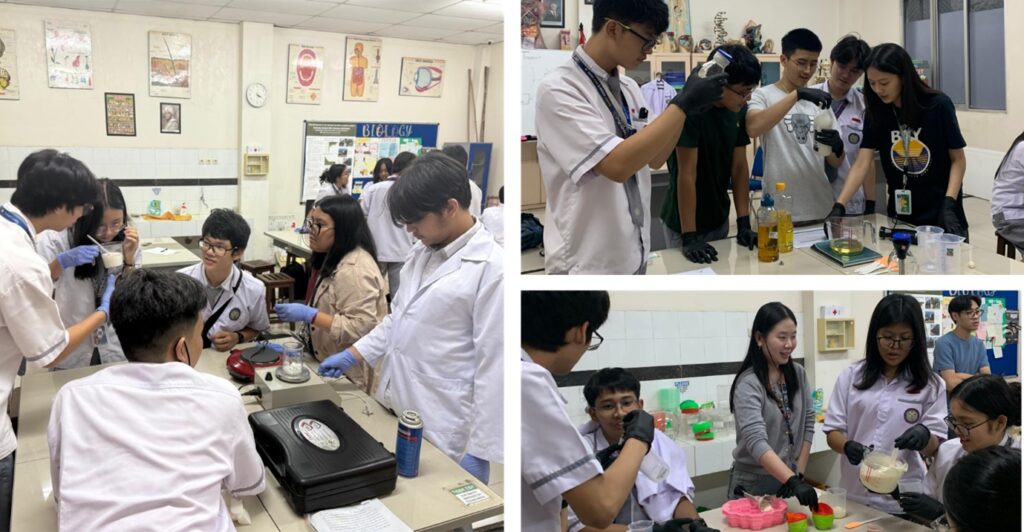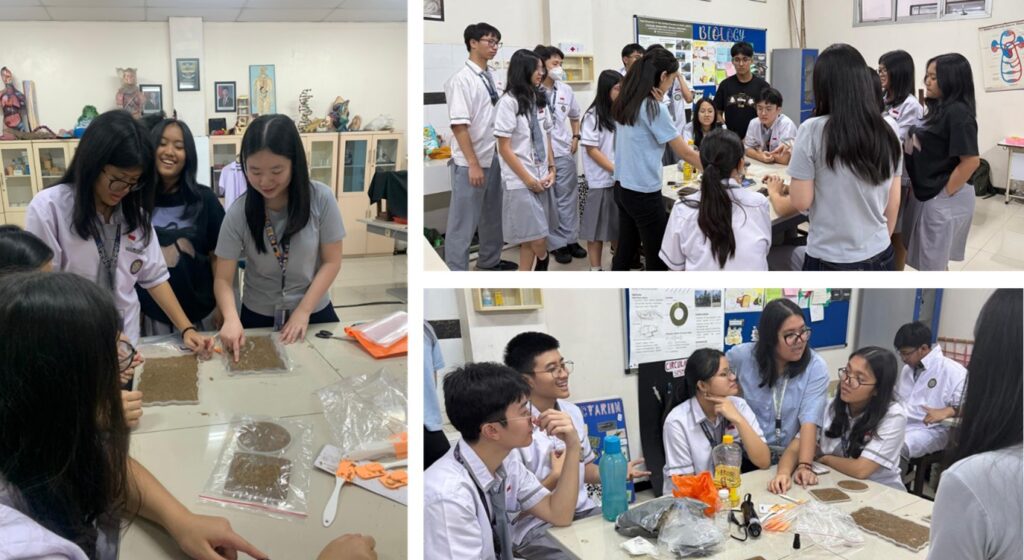From Campus to Community: Promoting SDGs through the Sustainable Bioproduct Extracurricular Program
The Biotechnology Study Program of BINUS University, in collaboration with St. John Catholic High School, organizes an extracurricular program titled “Sustainable Bioproduct.” This initiative forms part of the university’s Community Service activities, aiming to empower youth to increase awareness of the Sustainable Development Goals (SDGs) through the development of innovative, eco-friendly, and natural products that utilize organic waste materials. The program was conducted over one semester from August to November 2025. The activity modules were divided into five (5) sessions, each of which was designed based on research outcomes from the Faculty Member of the Biotechnology Study Program, led by Dr. Dwiyantari Widyaningrum as the primary instructor. The program was also assisted by the Biotechnology students Joan Cindana and Regita Agustin.
Throughout the semester, students participated in various hands-on workshops focused on sustainable product innovation. One of the key modules introduced was the production of natural soap enriched with eco-enzyme, inspired by the research-based product innovation BeeCo—a natural disinfectant and personal hygiene product derived from eco-enzyme technology (https://bridge.apps.binus.ac.id/product/BN001749531-beeco-natural-cleaning-personal-hygiene-and-s). The students learned to develop a product using eco-enzyme, which also utilized an eco-friendly method—for example, the cold process of soap production. Additionally, we encourage students to transition from synthetic products to natural products, which are safer and more environmentally friendly.

Another module highlighted the development of plant-based leather (https://bridge.apps.binus.ac.id/product/BN001749531-eco-friendly-plant-based-leather-from-banana), an alternative biomaterial designed to replace conventional animal leather. In this session, students learned about the basic principles, preparation process, and formulation techniques, allowing them to practice and experiment with creating sustainable materials from organic sources. The student was introduced to utilizing organic waste, such as banana peels, used coffee grounds, and fiber from pineapple waste, as the main materials for plant-based leather.

Through this extracurricular activity, high school students gained not only practical scientific experience but also developed a deeper awareness of sustainability, the circular economy, and environmental responsibility. The Sustainable Bioproduct extracurricular exemplifies how collaboration between higher education and schools can nurture young innovators and actively contribute to achieving the Sustainable Development Goals.
#sustainable #biotechnologyinnovation



Comments :